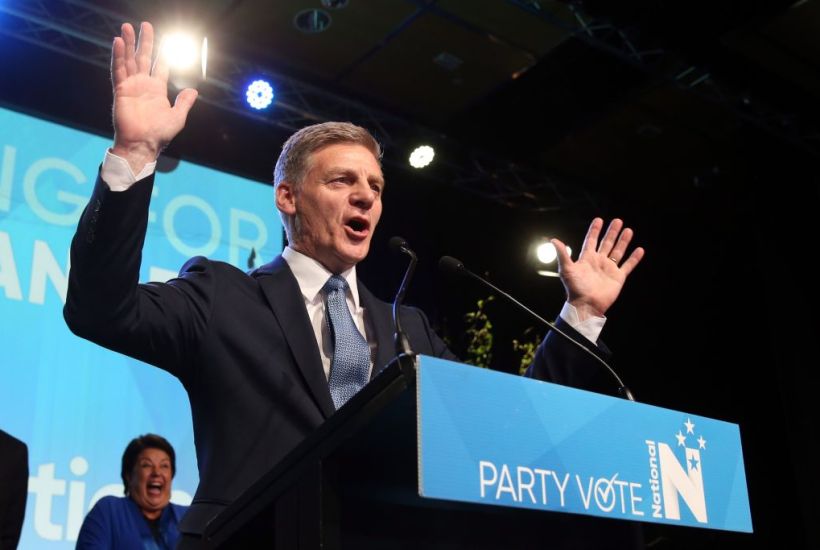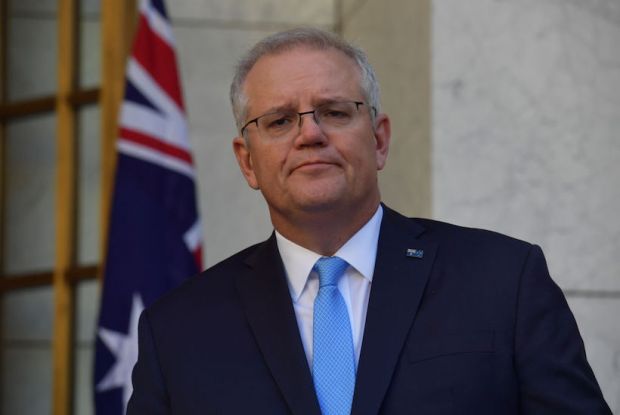As counting closed on New Zealand’s election night, the main focus of Kiwi commentators was on the performance of Labour leader Jacinda Ardern, and the fact that ageing maverick Winston Peters won sufficient seats to make him the arbiter of who will form New Zealand’s next government.
But surely the most remarkable thing is that PM Bill English and his National party won the election campaign, and won more seats than his Left challengers, Labour and Green, combined. All this after the ‘Jacindamania’ generated by Ardern’s fresh face, and after three consecutive terms of government.
At a shade over 46 per cent, National’s share of the vote is almost as much as it won under Sir John Key in in 2014. The difference is that Key won against a divided and lacklustre Labour led by an uninspiring David Cunliffe. This time, Ardern’s unexpected entry electrified the race, gave Labour fresh heart, unity and enthusiasm, and attracted donors and media attention when for so long they’d been all but written off.
As John Howard, and indeed Bob Hawke, showed in Australia, voters want stability and reliability over touchy-feely ‘I feel your pain’ promises. English may not have Key’s easy-going charisma, but under intense campaign pressure he showed he has not only substance as the engineer of National’s economic leadership, but a personal charm and rapport with voters that few thought within him.
Under the glare of Ardern’s meteoric rise, English and his campaign team kept their nerve and stuck to their economic narrative. And after a hesitant start, as if aware that Ardern had an ‘X-factor’ he didn’t, English threw inhibitions to the wind and proved himself a formidable campaigner on the hustings. As election day neared, he not only looked like he was enjoying himself: he was, and his confidence helped re-inspire National support after many voters flirted with Ardern.
If coalition negotiations with Peters give National their fourth term, English owes Ardern a huge debt of thanks. Her intense challenge brought out the best in English, gave New Zealanders a clear choice, and will remind the Nationals where they need to deliver more to retain support if they want a fifth term, particularly on social policy and housing affordability. Emerging from Key’s formidable shadow, English will be a better and more confident PM.
On this side of the ditch, we can only envy our Kiwi cousins. Across the spectrum, they show up the pathetic state of our political system and, indeed, our whole noxious political discourse.
Back in February, I wrote for the New Zealand Herald that under New Zealand mixed-member proportional electoral system ‘Helen Clark, Key and now English have pursued politically-challenging social, economic and welfare reforms, tempered by consensus-building and compromise in an MMP parliament. That keeps New Zealand politics reasonably centrist while Australia’s political agenda increasingly is fractured by angry and intolerant left and right fringes’. Meanwhile, Australian politics is marked by populism, division and self-interest, and a parliament all but unworkable when it comes to tough but necessary reform of any sort.
As the dust settles on the New Zealand election, Malcolm Turnbull should look across the Tasman and weep. His Howard-esque counterpart, English, knows who he is, what he stands for, and his party is disciplined and united. English had not only a strong record but fresh policies and ideas to take to the people, debate with them, and persuade them to stick with National rather than be seduced by Ardern’s ‘stardust’ and the excitement of her novelty.
When English talked ‘jobs and growth’, it was about policy substance, not empty slogans. Unlike Turnbull with the 2016 election’s Mediscare, English didn’t hesitate to get into the sandpit to take on Labour’s weaknesses and distortions, particularly on tax and economic management. No standing above the fray for English: he was hungry for election as PM in his own right, and it showed.
Another crucial difference from Australia is that Key and now English have governed for all New Zealanders. Perhaps that’s a function of MMP, which tends to bring the major parties to the political centre to win electoral success. But it also reflects the New Zealand government’s determination to do what it thinks is right for the country as a whole, and not be held hostage to the narrow, self-interested agendas of a few highly visible and vocal demographics.
Where the Australian political agenda has been hijacked by same-sex marriage advocates, changing our national day to suit a few Indigenous activists and working out how to reconcile Islamic settlement with Western values and traditions – issues mattering directly to roughly just three per cent of the Australian population in each case, if that – the Key and English governments have managed to defuse, address and accommodate similar Left-exploited concerns from the pragmatic mainstream, yet not be captured and obsessed by them as the Turnbull government is here.
The political lesson from New Zealand’s election for a directionless Turnbull, Liberal internal dissenters and the Coalition generally is simple. If you focus on issues that matter most to voters and not the political elites, and have a demonstrably competent and united team, you can prevail against superficial but attractive opposition. But if you show the voting public you have none of these, you make a rabble of an opposition electable, and you’re toast. Why should voters support you when you don’t support yourselves?
Turnbull shouldn’t just ring English and offer his congratulations on fighting an outstanding election campaign. He should take the opportunity to learn from English’s success to make himself a better leader, his government more competent, and his party much worthier of voters’ trust and respect.
Got something to add? Join the discussion and comment below.
Got something to add? Join the discussion and comment below.
Get 10 issues for just $10
Subscribe to The Spectator Australia today for the next 10 magazine issues, plus full online access, for just $10.


























Comments
Don't miss out
Join the conversation with other Spectator Australia readers. Subscribe to leave a comment.
SUBSCRIBEAlready a subscriber? Log in